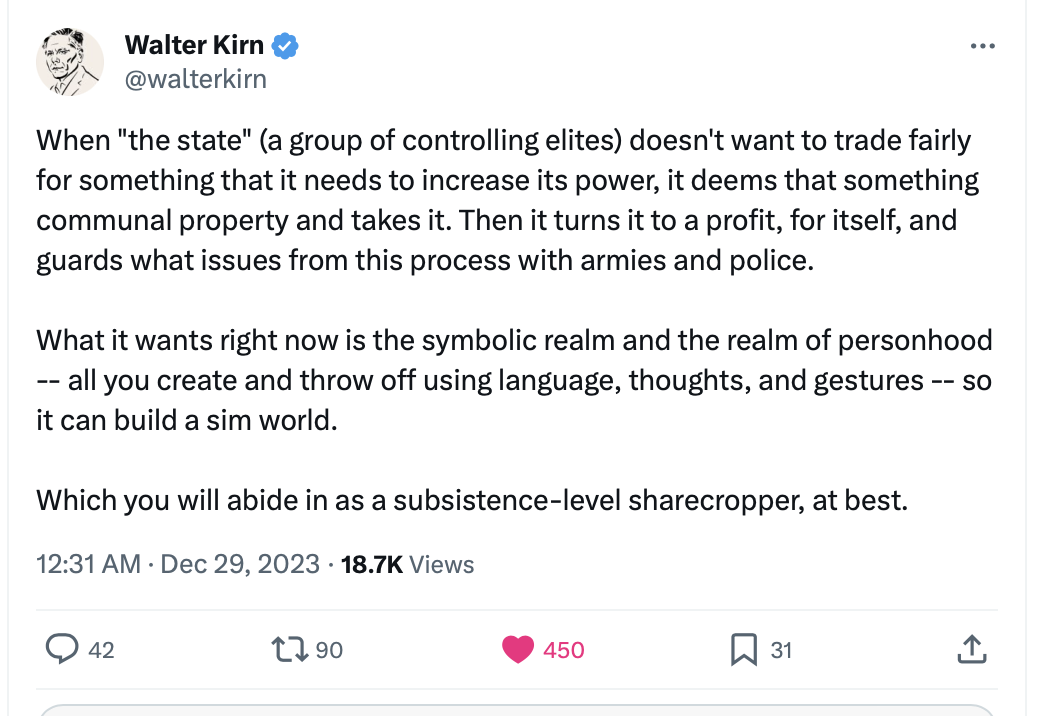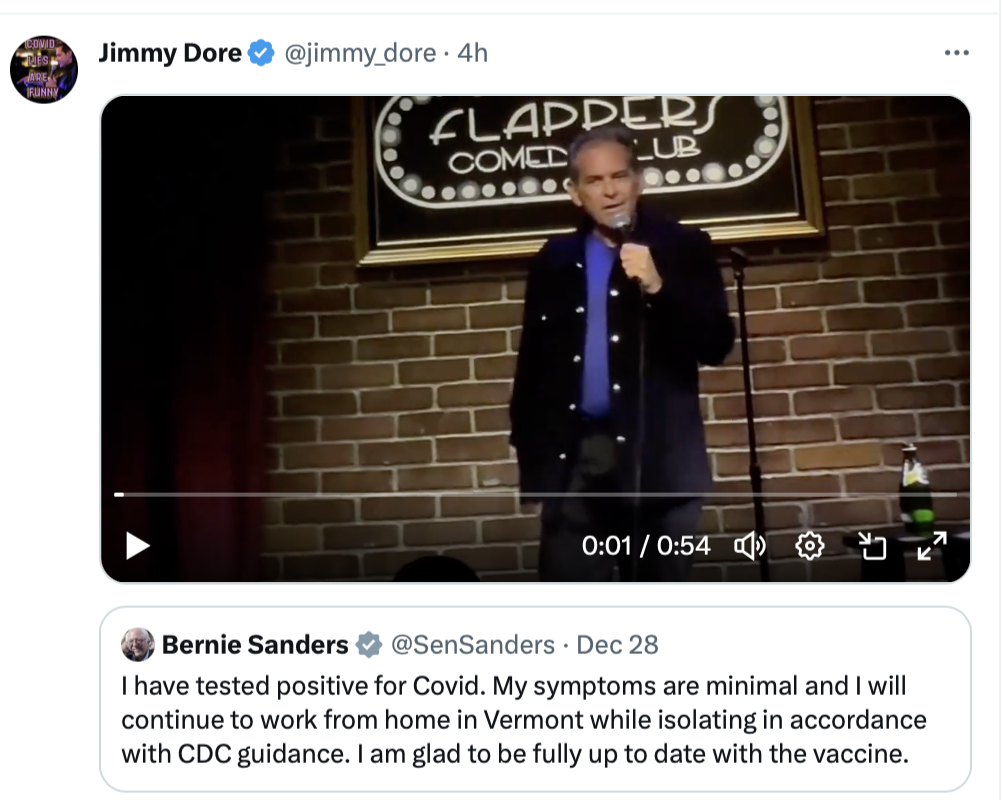George Carlin’s Report on “The News”
This is from page 122 of Carlin's book, 3 x Carlin: An Orgy of George:
Because, keep in mind, the news media are not independent; they are a sort of bulletin board and public relations firm for the ruling class— the people who run things. Those who decide what news you will or will not hear are paid by, and tolerated purely at the whim of, those who hold economic power. If the parent corporation doesn’t want you to know something, it won’t be on the news. Period. Or, at the very least, it will be slanted to suit them, and then barely followed up.Enjoy your snooze.
Steven Pinker Explains Free Speech to NPR
A couple years ago, NPR offered a colloquium on free speech that did not have any participant advocating for free speech. Today, Steven Pinker schools NPR on cancel culture and free speech. I'll take this as a sign of progress.



